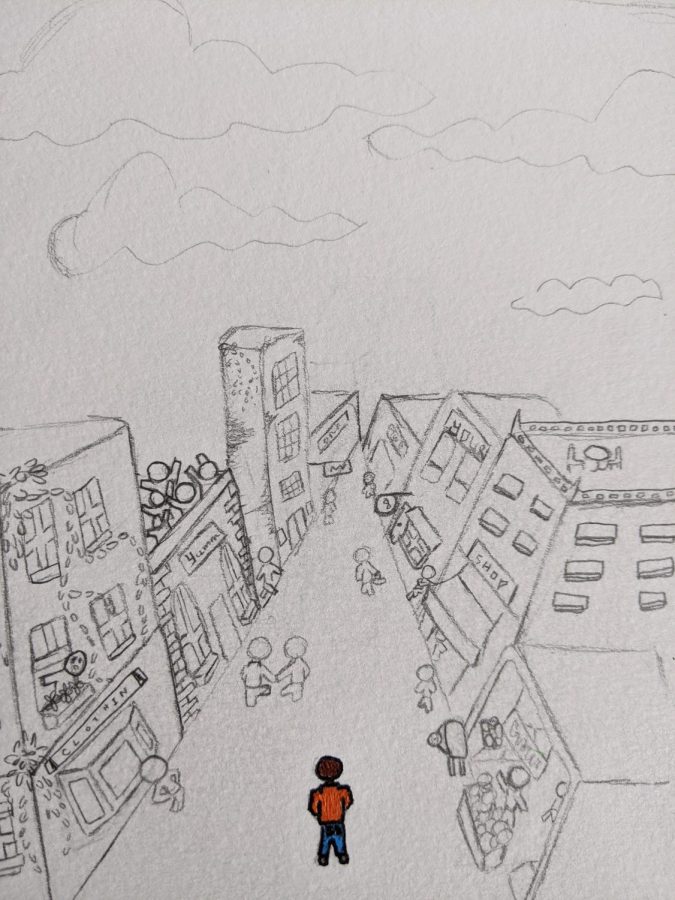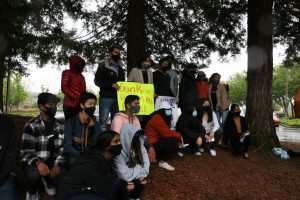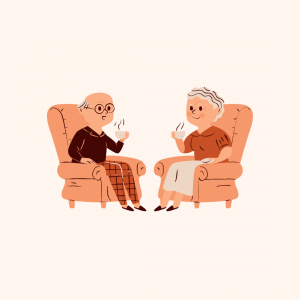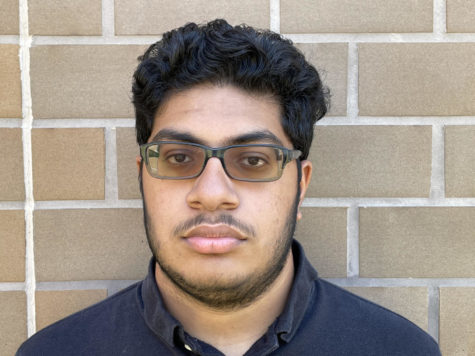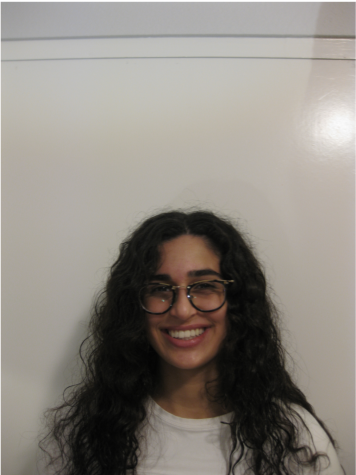And the world turned upside down
When people feel lost and confused in this world, everything starts to look the same.
June 3, 2021
“If I look at the mass I will never act. If I look at the one, I will.”- Mother Teresa
In the spring of 2020, my life and the lives of many other students changed irrevocably when the COVID-19 pandemic closed down our schools. Before that, COVID-19 had already ravaged its way across the world, and there seemed to be an unfortunate surprise every week, from threats of World War III to the most horrific instances of police brutality. It almost seemed that the world was ending.
Why does it feel like everything is out of control? Why does it feel like the world is going to hell (for lack of a better word)? I have somewhat of an idea. It has to do with apathy. People just don’t care enough to make things happen when it doesn’t affect them personally. Take for example the case of Kitty Genovese. She was stabbed multiple times by an attacker, who then ran away.
Nobody came forward to help the girl who was bleeding to death, and later, the killer came to finish the job. Nobody tried to help her at that moment because it didn’t affect them. It was a brutal, horrific event, and one that truly demonstrates the worst of human nature.
So, why did people stop caring? There are many different causes and effects. The one involved in Genovese’s death was the bystander effect. The bystander effect, to put it into simple terms, is the idea that “someone else will take care of it.” Somebody else will take responsibility (or in this case, care for another person), so I don’t have to do it. And when everyone thinks in this way, in other words, become apathetic, then nobody will step up and help out.
This effect is a lot more prevalent when you think about it, and isn’t present just in dire circumstances. It’s almost always easier to go hands-off than take the blame and the consequences. It’s easier to stay out of it rather than get your hands dirty. It’s easier to stay passive than to care.
Another effect that plays a role in apathy is tribalism. Essentially, the behavior is caused by a strong loyalty to one’s group. This kind of behavior can be helpful sometimes, but it is most debilitating. When people are separated from each other because of religion, race, creed, or social norms, it creates misunderstandings, then hatred and strife. When we care about our group so much, we start caring less and less about the other group.
This is a subject explored often such as in the Stanford Prison Experiment, where a group of college students was placed into the roles of “prisoner” or “guard”. The guards and the prisoners started to see themselves as different, despite all of them being college students. They treated each other horribly, like animals more than humans.
Let’s switch gears for a moment. By this point, one might think: “People donate to charity all the time! I volunteer at a shelter. That means that they care about others, right?” That might be true on the individual level. But, if people truly cared about each other all the time… then why is the world the way it is today? Why are horrible human beings able to thrive in this environment? Furthermore, the way society is today, people often maximize profit over ethics.
Take, for example, the practice of “Redlining”: a practice in which loan companies would refuse to give housing loans to people with a different skin color or lower income in order to maximize profit from the more affluent areas of town. When we reduce people to stats just to bring ourselves up, we create an environment where nothing is sacred. Not even human lives.
What can we do about this? Well, the first thing to do is to build a community. Anytime you see someone in danger or lost, take some time to help them out. I also want you to ask yourself, “What can I do to build my community?” Take a look around your school, or workplace. Who are the loneliest people, the ones most isolated? Try and reach out to them and help them.
We also need to start thinking about other people as “the masses”. Each one of those people has lives, dreams, and hopes, just like you and everyone else. When a terrorist attack occurs that happens to be committed by people who happened to be Muslims, don’t harass the hijab-wearing girl born in Dorchester.
When a school shooting threat occurs, don’t single out the quiet kid sitting by himself. Take time to learn about these individuals and don’t be apathetic to their existence,
Start caring about what’s going on. Don’t stick to your safe little bubble. In the end, we’re all human beings living in this messed-up world. Let’s try and make it a little better.

